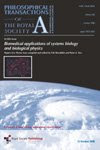This short summary is intended for readers who may otherwise not take a few minutes to watch the full video.
Jared Diamond auther of "Guns Germs and Steel_ the fate of human societies" and of "How Societies
Choose to Fail or Succeed" has drawn-up a five point framework-a check-list- to decipher why some Societies Collapse and others survive.
He pin-points main advanced warning signs from human societies histories and why today's leaders and general public must be made aware of these around an easy to remember, manageble 5 major themes and what the consequences are most likely to be, if we make the wrong choices, if we choose "not to see them, to ignore them!
He does not underestimate the complexities of such analyses.
THE 4-FOLD CHALLENGE:The reasons Jared Diamond has chosen to address theses difficult questions are four-fold:
- the very importance and seriousness of the possible catastrophnic out-comes,
- the difficulties involved in their analyses,
- the courage required to face up-to the results and to act upon them and
- to encourage a wide recognition of these factors as part of a democratic solution.
In the last post I presented Jared Diamonds video, the first selected for my intended series entitled "Foresight-Hindsight" It is chosen for the timely relevance to one of our current day issues the "Climate - Energy." relationship in a wold of finite resources.
My post could also be entitled, "Lessons form the past ever so relevent today".
Jared Diamond's 5 point Framework-Check list.1. Human impact the environment with an example of using all available non-renewable (limited) natural resources. This should ring a bell -Petrol Production Peak.
2.Climate Change. (not necessarily fatal.)
3.Relationship with friendly neighbours.
4.Relationship with hostile neighbours.
5. Social and cultural factors in societies which help or hinder solving their problems.
I inadvertantly made a "creative error" in my last post title. I wrote Forsight in stead of Foresight.I could just well be a better statement and rejoins J.Diamonds complaint "that if only we could see" or admit the reality behind "The Signs", The warning signals.
Diamond illustrates all his claims with numerous example.
The reader would be well advised to take 10 to 15 mns, the time to watch any one of Jared Diamand's the videos.









